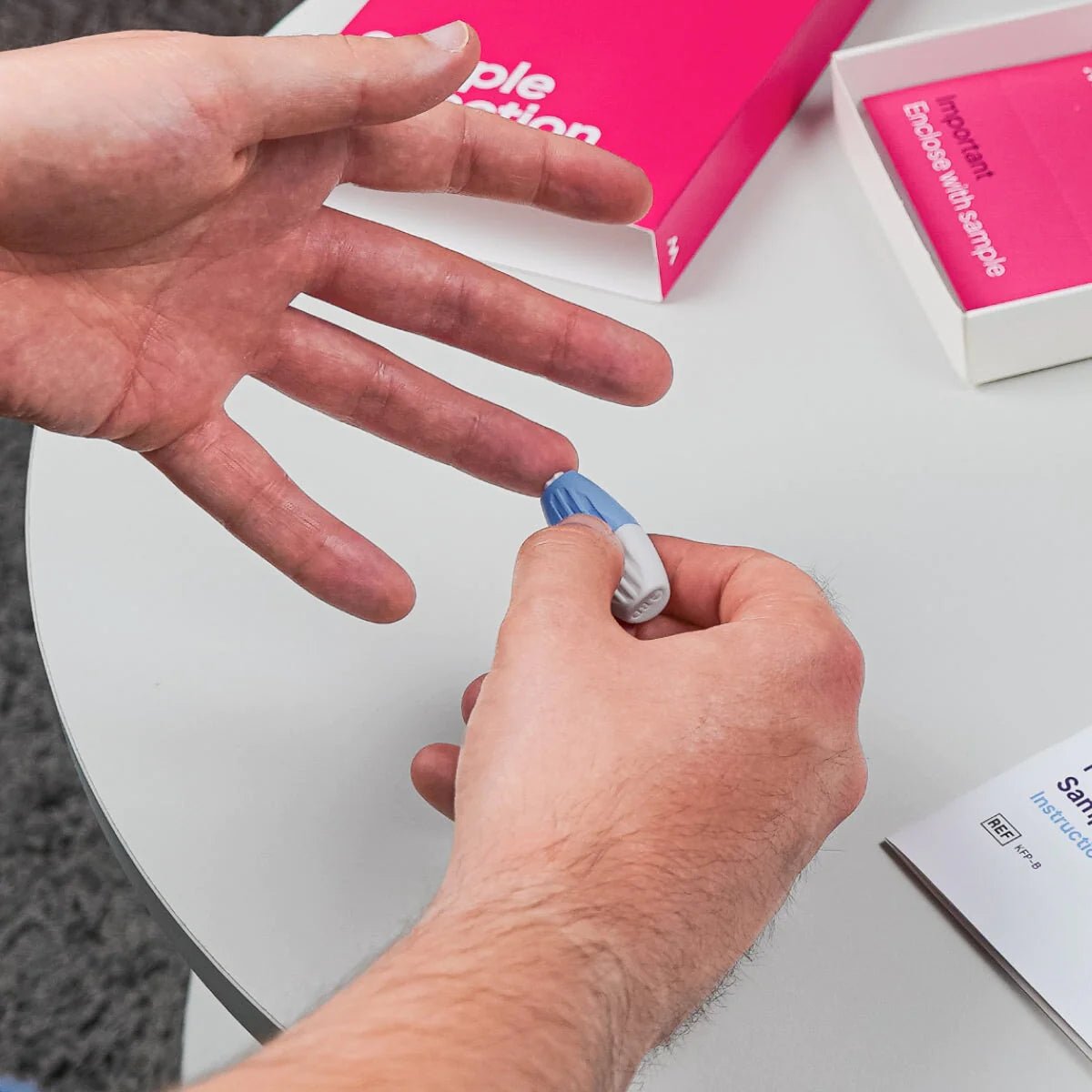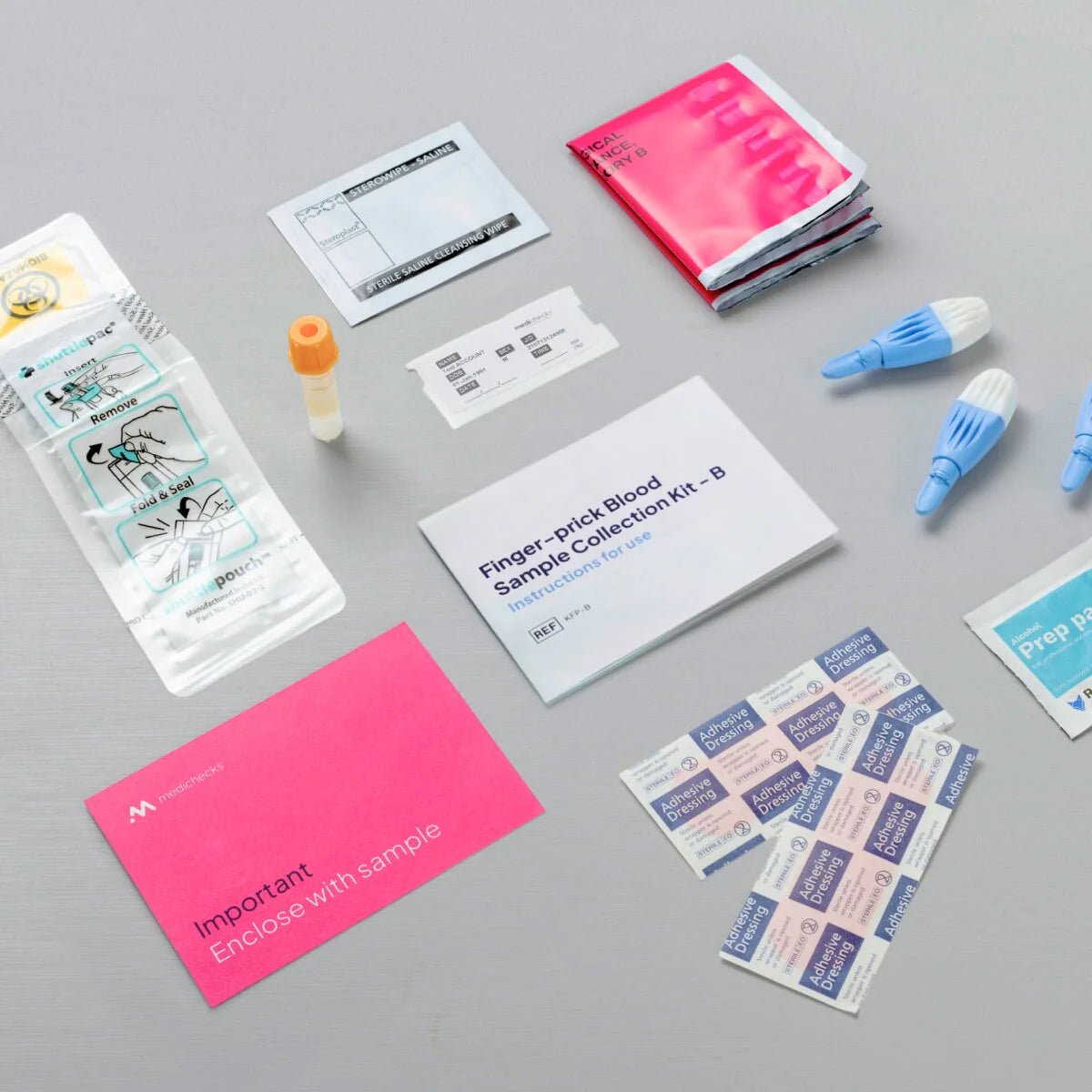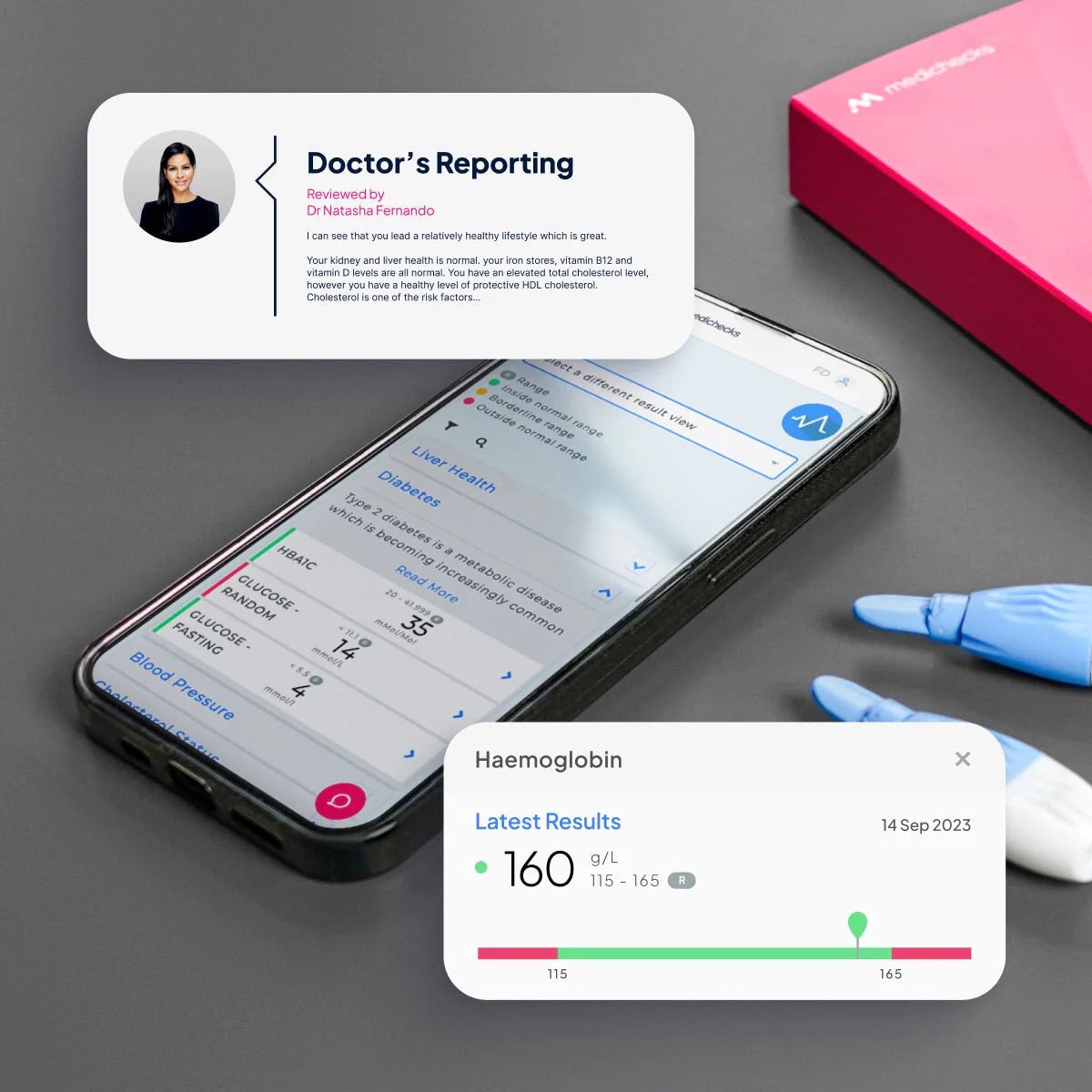PSA Blood Test
Description
Measure your level of prostate-specific antigen (PSA) — a marker for prostate cancer — with this home blood test. PSA is a protein made by healthy cells in the prostate gland, which is located below the bladder in men. As you get older, your prostate increases in size, and it’s normal for your PSA level to gradually increase over time. However, prostate cancer can also cause PSA levels to increase, so measuring your PSA level can be a useful screening tool.
Is it for me?
Are you over 50, over 45 and of black ethnicity, or do you have strong family history of prostate cancer? Perhaps you’d like to track your PSA level over time to check for changes.
Our PSA Blood Test can detect if you have a raised PSA level, which can help detect prostate cancer and let you take early action.
PSA (Prostate Specific Antigen) Blood Test, from our experts to you.
What is PSA and is it linked to prostate cancer?
PSA or prostate specific antigen is a protein made by healthy cells in the prostate — a small gland that sits below the bladder in males. As you get older, your prostate gets bigger, and it’s normal to see your PSA level gradually increase over time. However, prostate cancer can also cause PSA levels to increase, so measuring PSA can be a useful screening tool.
What can I learn from a PSA Blood Test?
Our at-home test measures your PSA level to see if it’s raised. A PSA Blood Test can help pick up prostate cancer before symptoms develop, and may detect a fast-growing cancer at an early stage when treatment is more likely to be effective. Regular testing can be useful if you’re at increased risk, such as if you have a family history of the condition. And if you’ve already been diagnosed with prostate cancer, you can monitor your level with regular PSA tests.
What if my PSA level is raised?
If your PSA level is raised, it doesn’t necessarily mean you have prostate cancer. There are many other reasons why you may have a raised PSA level (find out more in the limitations of the test section).
A PSA blood test is just a first step, and if your result is only slightly raised, your doctor may suggest repeating the test in a few weeks. If your PSA level is repeatedly raised, or if you have other signs and symptoms of prostate cancer, such as needing to urinate more often, you may be referred to a specialist for further tests.
Not all prostate cancer is aggressive and, in some cases, might not need treatment.
Limitations of the test
Around three quarters of men with a raised PSA level don’t have prostate cancer. This is known as a false positive result, and it can lead to unnecessary worry and investigations.
This test might also miss prostate cancer. This is rarer, but it can be harmful if a fast-growing cancer is missed.
There are other pros and cons to PSA testing. And you can find out more in our guide on whether you should take a PSA test.
Taking certain drugs that reduce the size of the prostate, such as finasteride or dutasteride, can falsely lower PSA levels. Please let us know if you're taking this sort of medication.
What's Included?
Prostate
PSA - Total
Prostate Specific Antigen (PSA) is a protein which is released into the blood by the prostate gland. Prostate cancer can raise PSA levels but a PSA test in isolation is not to be relied upon to diagnose prostate cancer, as levels can be raised in benign prostate disorders (a false positive). There is also the potential for PSA levels to be normal despite the presence of prostate cancer, this is called a false negative.
How to prepare for your test
Prepare for your PSA (Prostate Specific Antigen) Blood Test by following these instructions. Avoid heavy exercise for 48 hours beforehand. Please avoid ejaculating for 48 hours prior to this test. Do not take biotin supplements for two days before this test, discuss this with your doctor if it is prescribed.
FAQ
What Are The Symptoms Of Prostate Cancer?
In the early stages, prostate cancer doesn’t usually have any signs or symptoms. But as it grows and develops, it usually begins to press against the urethra, changing the way you urinate, and causing symptoms like a weak flow and needing to urinate more often (especially at night). However, these symptoms aren’t always a sign of cancer and it’s best to talk to your GP about any new symptoms.
What Is A Normal PSA Level?
There is no one PSA level that’s considered normal. However, PSA level thresholds differ with age. The table below, based on figures from NICE guidance, applies to patients with possible symptoms of prostate cancer, and is given as a guide. You may be referred to a specialist if your PSA level corresponds with these figures. But your GP will take many other factors into account (such as any symptoms you may have and examination results) before referring you.
| Age | PSA level |
| 40-49 | >2.5ng/ml |
| 50-59 | >3.5ng/ml |
| 60-69 | >4.5ng/ml |
| 70-70 | >6.5ng/ml |
What Causes A High PSA Level?
Prostate cancer is only one of several causes of raised PSA levels. And many of these other causes are benign and treatable. They include urinary tract infections (UTIs), or even recent ejaculation and some forms of exercise. Find out more about causes of raised PSA levels.
How Can I Reduce My PSA Level?
If your PSA level is raised, you may be wondering how you can reduce your level. But it’s perhaps more important to consider how you can reduce your overall risk of prostate cancer. Many risk factors are fixed, such as age, ethnicity, and having a family history of the disease. However, lifestyle factors like having a healthy diet and taking regular exercise may help to reduce your risk. And maintaining a healthy weight may also reduce your risk of developing advanced forms of prostate cancer.
Can I Take A PSA Test At Home?
Yes, you can check your PSA level at home with our PSA home test kit. We’ll send you everything you need, including a pre-paid return envelope. Our PSA home test includes a full lab analysis of your blood sample. You can access your results on your MyMedichecks dashboard, alongside doctor’s advice and any next steps.
Risk factors for prostate cancer
Some men are at higher risk of developing prostate cancer than others. The risk is higher if you’re over 50, over 45 and of black ethnicity, or if you have a family history of prostate cancer. Some lifestyle factors are also likely to increase your risk, such as being overweight and eating a poor diet, especially one that’s low in vegetables and high in processed meats and saturated fats. Learn more about your risk of prostate cancer .
Trans women, non-binary people, and PSA
Both trans women and non-binary people who were assigned male at birth have a prostate, even after gender-affirming surgery, so it’s still possible to get prostate cancer. Your risk will vary depending on whether you’ve had treatment that affects your testosterone levels. Testosterone-lowering therapy and gender-affirming surgery can slightly reduce your risk of prostate cancer compared to cis men, but they can also falsely lower your PSA level. So, it's important that these factors are considered when a doctor interprets your result. Find out more about measuring PSA if you’re a trans woman or non-binary.
BE MORE JELLYFISH
The science of Longevity is growing at breakneck speed and tens of BILLIONS of dollars are being invested in solutions to help us all slow aging. But until 'Longevity Escape Velocity' has been achieved, we should all be more like Turritopsis Dohrnii jellyfish - which do not age - and we should invest in our long-term health with a healthy lifestyle, supported by longevity supplements.
Worldwide
Guarantee
Payment
Policy






